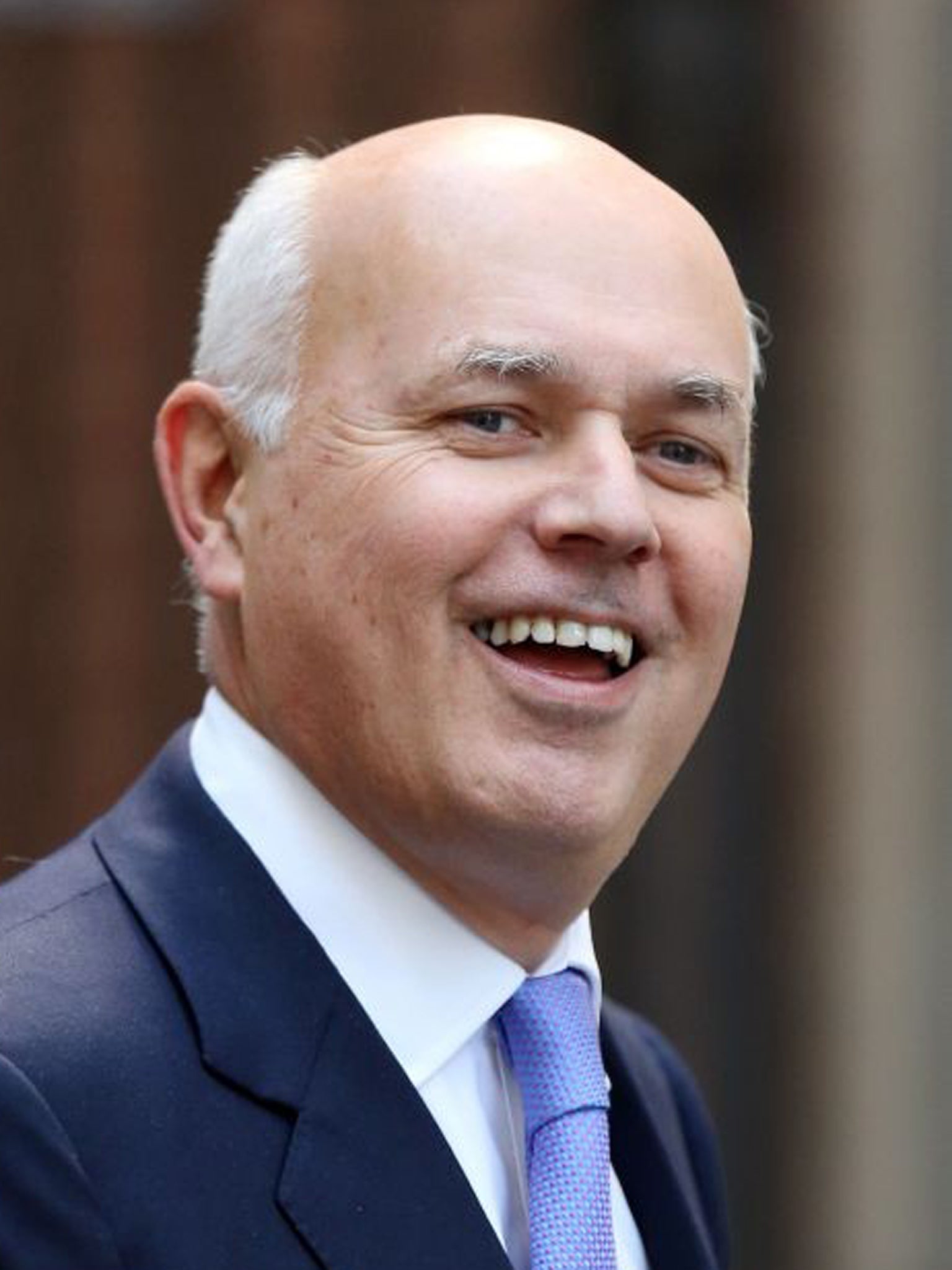Iain Duncan Smith attacked over claims benefit cap is driving jobless to work
Former chief economist at the DWP accuses the former Conservative Party leader of misrepresenting government statistics

Your support helps us to tell the story
From reproductive rights to climate change to Big Tech, The Independent is on the ground when the story is developing. Whether it's investigating the financials of Elon Musk's pro-Trump PAC or producing our latest documentary, 'The A Word', which shines a light on the American women fighting for reproductive rights, we know how important it is to parse out the facts from the messaging.
At such a critical moment in US history, we need reporters on the ground. Your donation allows us to keep sending journalists to speak to both sides of the story.
The Independent is trusted by Americans across the entire political spectrum. And unlike many other quality news outlets, we choose not to lock Americans out of our reporting and analysis with paywalls. We believe quality journalism should be available to everyone, paid for by those who can afford it.
Your support makes all the difference.Iain Duncan Smith has been attacked over claims that his cap on benefits was driving people to find work.
A former chief economist at the Department for Work and Pensions (DWP), which is now headed by the Tory minister, accused the former Conservative Party leader of misrepresenting government statistics
Jonathan Portes, now the director of National Institute of Economic and Social Research, suggested there was “no evidence at all” to show the imminent £26,000-a-year cap had affected people’s behaviour.
Yesterday, the DWP released figures showing the number of people expected to be hit by the cap had fallen from 56,000 to 40,000, with 8,000 claimants finding work through JobCentre Plus.
Mr Duncan Smith suggested the cap had helped people reverse their dependency on the welfare state, telling the Daily Mail: “Already we've seen 8,000 people who would have been affected by the cap move into jobs. This clearly demonstrates that the cap is having the desired impact.”
But Mr Portes told BBC Radio 4’s Today programme said he had noticed a “consistent pattern” of ministers trying to manipulate statistics to their own political ends.
“The actual analysis published by the Department for Work and Pensions makes it quite clear that they do not attempt to analyse any impact of behavioural change and that there is as yet no evidence one way or the other that there is behavioural change,” he said.
“It may be that the benefit cap has indeed had the effect that Iain Duncan Smith would like it to have. That is perfectly possible but without doing the analysis - and it has not been done - you simply cannot say that and you shouldn't say it.”
TUC general secretary Frances O'Grady joined in the bashing of the Work and Pensions minister, saying: “Iain Duncan Smith is a serial offender for misusing statistics. He has been wrapped over the knuckles for doing this before and if he needs to cook the books, his arguments must be weak.”
The DWP said that it had followed the correct procedures in publishing the data.
“The original forecasts were based on impact assessments last year and have now been updated due to further developments,” a spokesman said.
“We have followed the correct procedures for publishing this data by our statisticians and it is available for anyone to study. Claims to the contrary are utterly unfounded.”
Join our commenting forum
Join thought-provoking conversations, follow other Independent readers and see their replies
Comments